The Perils of Being Conscientious
When caring too much tips into guilt and self-criticism
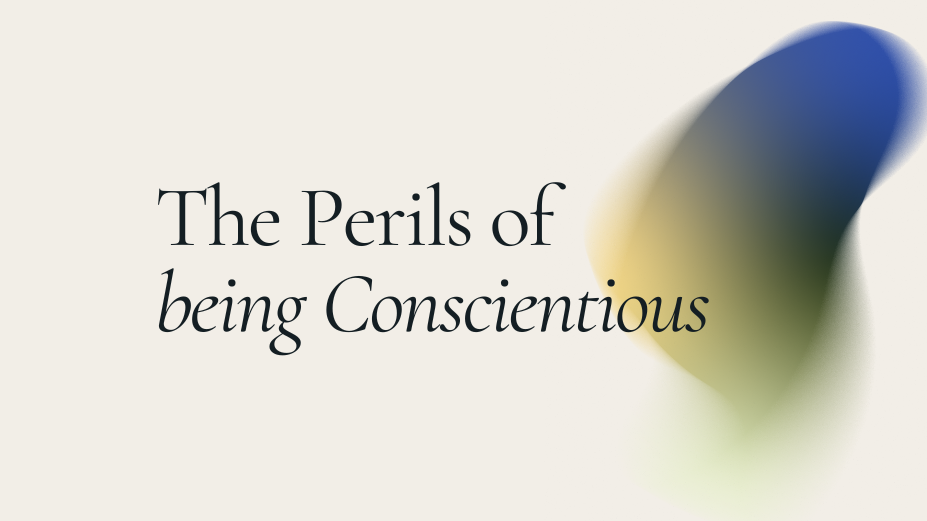
“Conscientiousness can be a double-edged sword: left unexamined, it risks breeding guilt, burnout, and hesitation; but guided with the right support, it can fuel responsibility, trustworthiness, and resilience.”
Who wouldn’t want to describe themselves as conscientious? Who wants to admit to not having discipline, diligence, high personal standards, and a sense of accountability for things that are our responsibility?
It sounds like a trait we should all aspire to. And in many ways, the evidence supports that.
Research shows that people who score highly in conscientiousness tend to earn more, be happier, and live longer, healthier lives. Woohoo (if you happen to be highly conscientious).
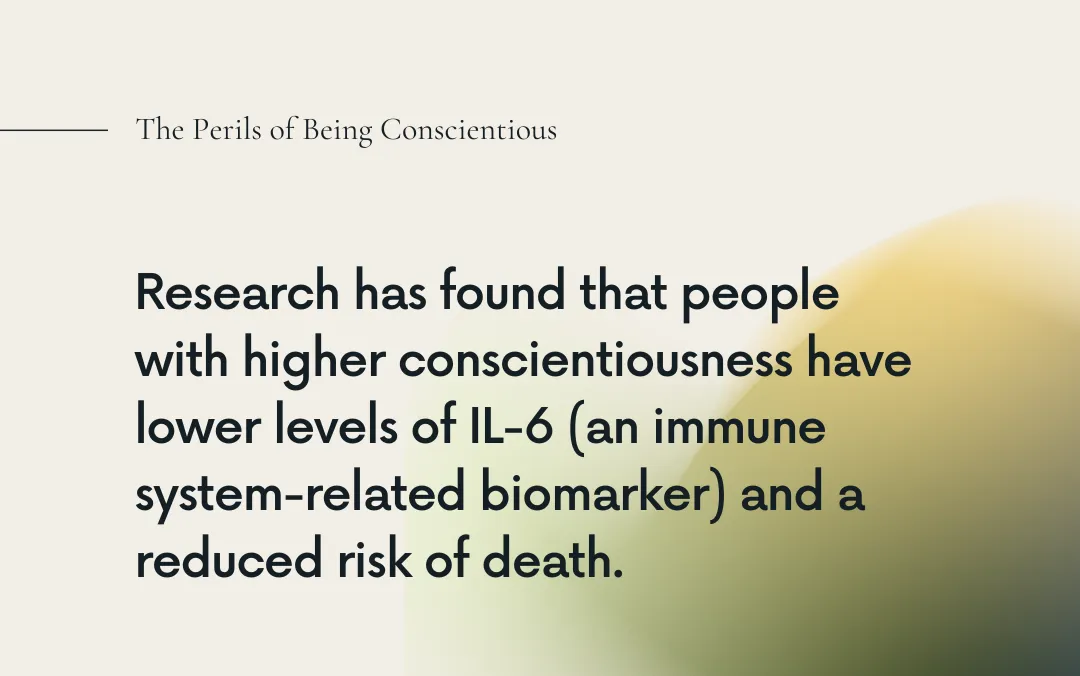
But conscientiousness doesn’t just matter for our health and happiness as individuals. Its impact shows up powerfully in our working lives too.
The strengths of conscientiousness
In working life, people rarely get to be managers or leaders if they don’t have an ability to emotionally invest in the purpose and performance of their organisation. A disinterested shrug of the shoulders is rarely a good response to a demanding organisation.
And this is where the patterns in the research get interesting. Women, in particular, tend to score highly on conscientiousness measures. Over the last 20 years, I’ve coached many senior and high-potential women who fit this profile: they care deeply about their work, but they also care deeply about other aspects of their world.
That care extends in many directions. They are often mothers who sometimes overthink their parenting approach, or adult children who worry that they are disappointing their parents, or friends who take responsibility for the organisation and cohesion of their friendship groups.
And conscientiousness doesn’t stop at family and friends. There is also a correlation between conscientiousness and empathy and/or people-pleasing, with a strong sense of responsibility towards others. Many of these women also take on commitments to social, environmental, or community causes, driven by a deep-seated belief that they need to get involved to make the world better.
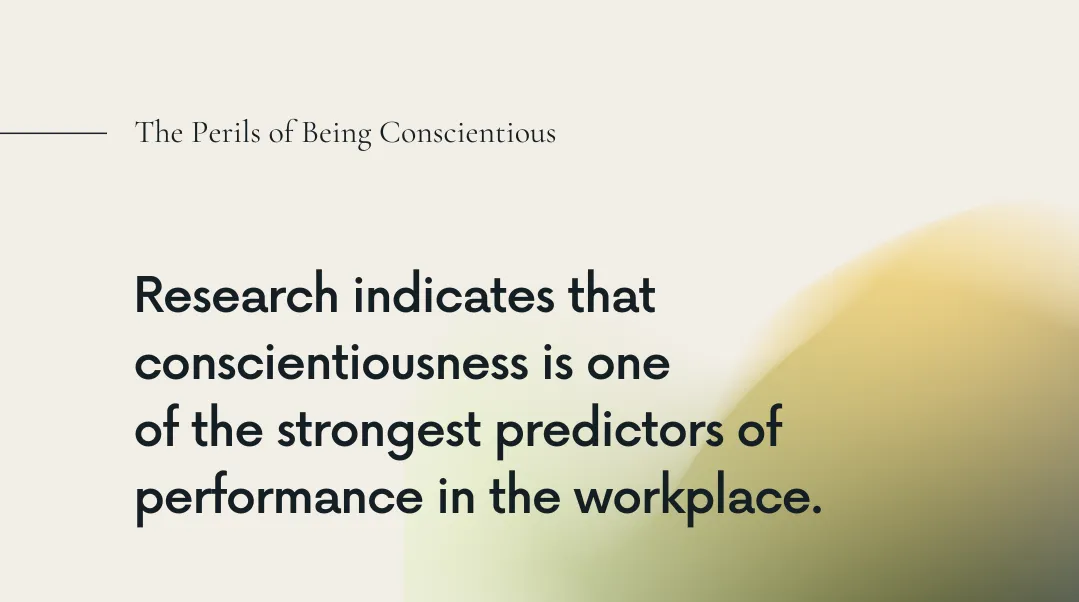
What’s not to like? I’m describing people who want to do good by their organisations, their families, and the wider world in which they live.
And yet, if conscientiousness pushes us to care so much, isn’t there a point where that very strength becomes a weight?
The shadows of conscientiousness
“Guilt and conscientiousness can be two sides of the same coin.”
Like every other trait we can possess as human beings, conscientiousness has shadow sides. These can take several forms – overcommitment, lacking spontaneity, and sometimes feeling guilt and a persistent sense of failure.
Why guilt? To a large extent, guilt and conscientiousness are mutually inclusive; we are very unlikely to feel guilty about things that we really don’t care about.
I notice this in myself. I can feel extraordinarily guilty for occasionally having to cancel a meeting with a client, but no guilt whatsoever for not doing my expenses on time. Both are parts of my job, but I have vastly different levels of emotional investment in them. The relative importance I place on myself and others is at play here.
For those with high levels of conscientiousness, guilt can become a constant, nagging companion. And when it does, the consequences ripple far beyond private discomfort.
Jane’s story
Name and details have been changed to preserve anonymity.
“She’s a superwoman who has it all. To her, she’s continually failing in each domain.”
Take Jane, a talented female client. On the surface, she looks like the model of conscientious success. She is ambitious and wants to progress in her career. She works long hours, has an appetite for responsibility, and is perceived as proactive, energetic, and a safe pair of hands. She is also a devoted mother to three kids, a loving partner to a husband with a demanding job, and a trustee of a local environmental charity.
From the outside, she appears to be skilfully juggling several demanding parts of her world. From the inside, she feels she is continually failing in each domain.
If she’s at work after 5pm trying to complete her to-do list (which, in our permanently connected world, she is most days), she feels like a failing, neglectful mum. If she’s enjoying being with her kids and partner, her mind wanders, too often, to the incomplete to-do list. This discomfort is regularly sprinkled with guilt that she isn’t contributing enough to the charity, or speaking often enough to her mum, dad, and brother.
Wherever she is, she feels guilty about not being somewhere else.
This lack of compartmentalisation is a very modern problem. Thirty years ago, when I started my career (I’m really old!), I finished my work for the day when I left the office. That sense of boundary is very rare nowadays.
And Jane’s inner struggle doesn’t just stay private. When asked about the perception of her as successful and talented, Jane demurs and her focus goes quickly to her failings – as a mum, in particular. Her inner critic often becomes harsh and wounding, punishing her for shortcomings (as she sees them) rather than recognising the many positive attributes she has.
That distorted self-view then has knock-on effects. Because Jane doesn’t see herself as particularly talented, despite her ambition (and research shows roughly 80% of women want to be promoted), she has missed out on promotions because she doesn’t put herself forward. Why would someone give her a bigger job when she’s failing at this one?
Jane’s story makes the shadows visible: conscientiousness, when untempered, can push people to care so much that they feel they are always falling short. And that self-perception can quietly hold back even the most capable.
How do we make sure conscientiousness isn’t holding us – or our employees – back?
Is guilt and a harsh inner critic an inevitable companion to conscientiousness? Well, no. While they are commonly conjoined, we can learn to separate them.
The first step is awareness. By recognising this pattern and spotting that regular pang of guilt, we can disrupt the habitual negative self-talk.
This matters because human beings, especially talented and driven ones, often equate things feeling difficult with their inadequacy. But very often, things feel hard simply because they are hard – like juggling a big job and being a loving parent.
Those pangs of guilt, while instinctive, aren’t necessarily true or fair. When we’re able to recognise this, and remind ourselves that it’s OK to be in different parts of our world at different times, we can begin to construct boundaries. Over time, those boundaries help dial down the negative effects of guilt.
And perhaps most helpfully, we can reframe guilt itself. The pangs are not proof of failure; they exist only because we are deeply conscientious and caring.
The role of organisations
But it isn’t just down to individuals. Because conscientiousness is so often rewarded at work, organisations have a role to play in helping people manage its shadows as well as its strengths.
In my experience, HR and L&D/Talent departments do far too little to equip their people with the self-awareness to spot these compulsions and manage them more effectively.
And that matters, because conscientiousness can be a double-edged sword. Left unexamined, it risks breeding guilt, burnout, and hesitation. But guided with the right support, it can fuel responsibility, trustworthiness, and resilience.
The task, then, isn’t to encourage or discourage conscientiousness. It’s to help people use it wisely – so that the very trait that powers progression doesn’t quietly hold it back, especially for women.
SPEAKERS
“Conscientiousness can be a double-edged sword: left unexamined, it risks breeding guilt, burnout, and hesitation; but guided with the right support, it can fuel responsibility, trustworthiness, and resilience.”
Who wouldn’t want to describe themselves as conscientious? Who wants to admit to not having discipline, diligence, high personal standards, and a sense of accountability for things that are our responsibility?
It sounds like a trait we should all aspire to. And in many ways, the evidence supports that.
Research shows that people who score highly in conscientiousness tend to earn more, be happier, and live longer, healthier lives. Woohoo (if you happen to be highly conscientious).

But conscientiousness doesn’t just matter for our health and happiness as individuals. Its impact shows up powerfully in our working lives too.
The strengths of conscientiousness
In working life, people rarely get to be managers or leaders if they don’t have an ability to emotionally invest in the purpose and performance of their organisation. A disinterested shrug of the shoulders is rarely a good response to a demanding organisation.
And this is where the patterns in the research get interesting. Women, in particular, tend to score highly on conscientiousness measures. Over the last 20 years, I’ve coached many senior and high-potential women who fit this profile: they care deeply about their work, but they also care deeply about other aspects of their world.
That care extends in many directions. They are often mothers who sometimes overthink their parenting approach, or adult children who worry that they are disappointing their parents, or friends who take responsibility for the organisation and cohesion of their friendship groups.
And conscientiousness doesn’t stop at family and friends. There is also a correlation between conscientiousness and empathy and/or people-pleasing, with a strong sense of responsibility towards others. Many of these women also take on commitments to social, environmental, or community causes, driven by a deep-seated belief that they need to get involved to make the world better.

What’s not to like? I’m describing people who want to do good by their organisations, their families, and the wider world in which they live.
And yet, if conscientiousness pushes us to care so much, isn’t there a point where that very strength becomes a weight?
The shadows of conscientiousness
“Guilt and conscientiousness can be two sides of the same coin.”
Like every other trait we can possess as human beings, conscientiousness has shadow sides. These can take several forms – overcommitment, lacking spontaneity, and sometimes feeling guilt and a persistent sense of failure.
Why guilt? To a large extent, guilt and conscientiousness are mutually inclusive; we are very unlikely to feel guilty about things that we really don’t care about.
I notice this in myself. I can feel extraordinarily guilty for occasionally having to cancel a meeting with a client, but no guilt whatsoever for not doing my expenses on time. Both are parts of my job, but I have vastly different levels of emotional investment in them. The relative importance I place on myself and others is at play here.
For those with high levels of conscientiousness, guilt can become a constant, nagging companion. And when it does, the consequences ripple far beyond private discomfort.
Jane’s story
Name and details have been changed to preserve anonymity.
“She’s a superwoman who has it all. To her, she’s continually failing in each domain.”
Take Jane, a talented female client. On the surface, she looks like the model of conscientious success. She is ambitious and wants to progress in her career. She works long hours, has an appetite for responsibility, and is perceived as proactive, energetic, and a safe pair of hands. She is also a devoted mother to three kids, a loving partner to a husband with a demanding job, and a trustee of a local environmental charity.
From the outside, she appears to be skilfully juggling several demanding parts of her world. From the inside, she feels she is continually failing in each domain.
If she’s at work after 5pm trying to complete her to-do list (which, in our permanently connected world, she is most days), she feels like a failing, neglectful mum. If she’s enjoying being with her kids and partner, her mind wanders, too often, to the incomplete to-do list. This discomfort is regularly sprinkled with guilt that she isn’t contributing enough to the charity, or speaking often enough to her mum, dad, and brother.
Wherever she is, she feels guilty about not being somewhere else.
This lack of compartmentalisation is a very modern problem. Thirty years ago, when I started my career (I’m really old!), I finished my work for the day when I left the office. That sense of boundary is very rare nowadays.
And Jane’s inner struggle doesn’t just stay private. When asked about the perception of her as successful and talented, Jane demurs and her focus goes quickly to her failings – as a mum, in particular. Her inner critic often becomes harsh and wounding, punishing her for shortcomings (as she sees them) rather than recognising the many positive attributes she has.
That distorted self-view then has knock-on effects. Because Jane doesn’t see herself as particularly talented, despite her ambition (and research shows roughly 80% of women want to be promoted), she has missed out on promotions because she doesn’t put herself forward. Why would someone give her a bigger job when she’s failing at this one?
Jane’s story makes the shadows visible: conscientiousness, when untempered, can push people to care so much that they feel they are always falling short. And that self-perception can quietly hold back even the most capable.
How do we make sure conscientiousness isn’t holding us – or our employees – back?
Is guilt and a harsh inner critic an inevitable companion to conscientiousness? Well, no. While they are commonly conjoined, we can learn to separate them.
The first step is awareness. By recognising this pattern and spotting that regular pang of guilt, we can disrupt the habitual negative self-talk.
This matters because human beings, especially talented and driven ones, often equate things feeling difficult with their inadequacy. But very often, things feel hard simply because they are hard – like juggling a big job and being a loving parent.
Those pangs of guilt, while instinctive, aren’t necessarily true or fair. When we’re able to recognise this, and remind ourselves that it’s OK to be in different parts of our world at different times, we can begin to construct boundaries. Over time, those boundaries help dial down the negative effects of guilt.
And perhaps most helpfully, we can reframe guilt itself. The pangs are not proof of failure; they exist only because we are deeply conscientious and caring.
The role of organisations
But it isn’t just down to individuals. Because conscientiousness is so often rewarded at work, organisations have a role to play in helping people manage its shadows as well as its strengths.
In my experience, HR and L&D/Talent departments do far too little to equip their people with the self-awareness to spot these compulsions and manage them more effectively.
And that matters, because conscientiousness can be a double-edged sword. Left unexamined, it risks breeding guilt, burnout, and hesitation. But guided with the right support, it can fuel responsibility, trustworthiness, and resilience.
The task, then, isn’t to encourage or discourage conscientiousness. It’s to help people use it wisely – so that the very trait that powers progression doesn’t quietly hold it back, especially for women.

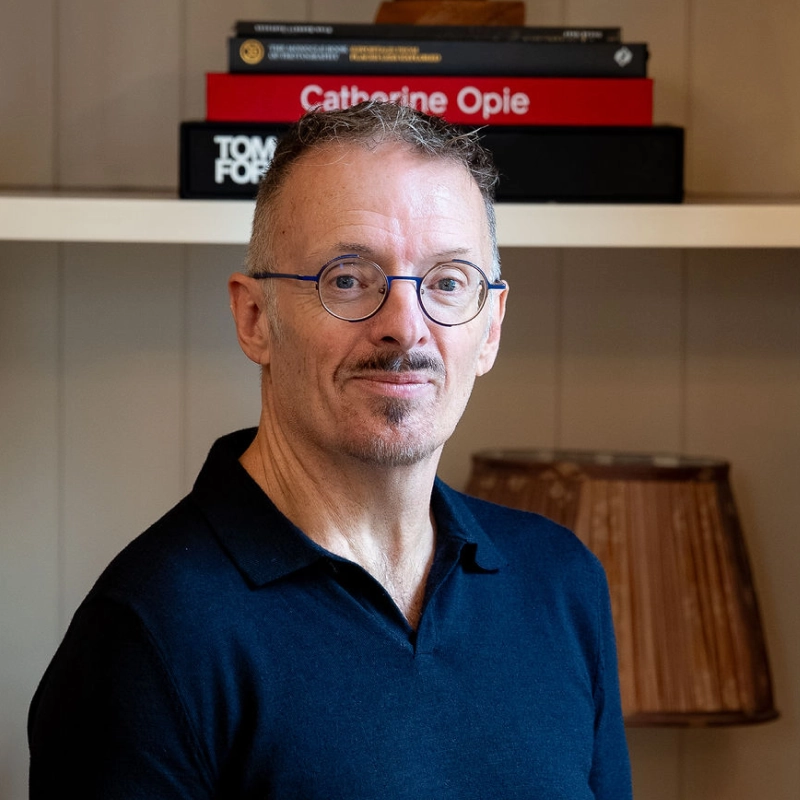
.png)
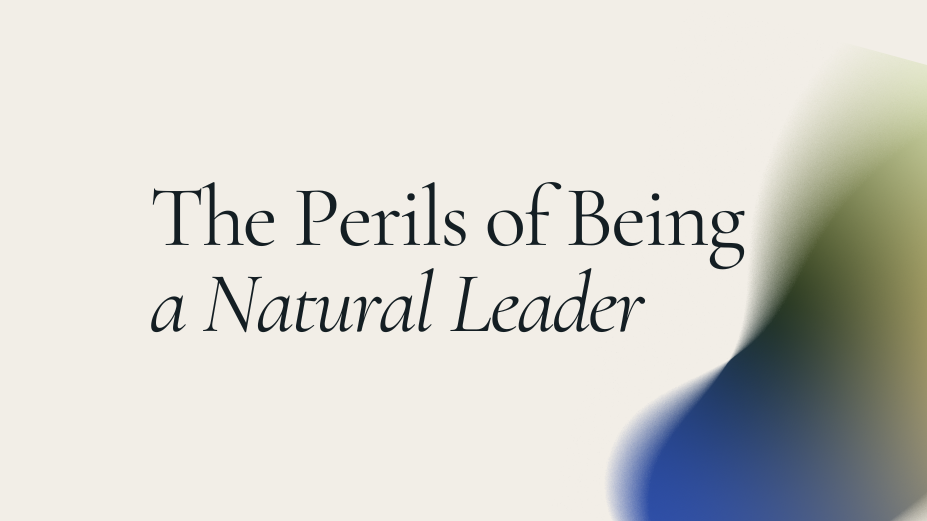
.png)